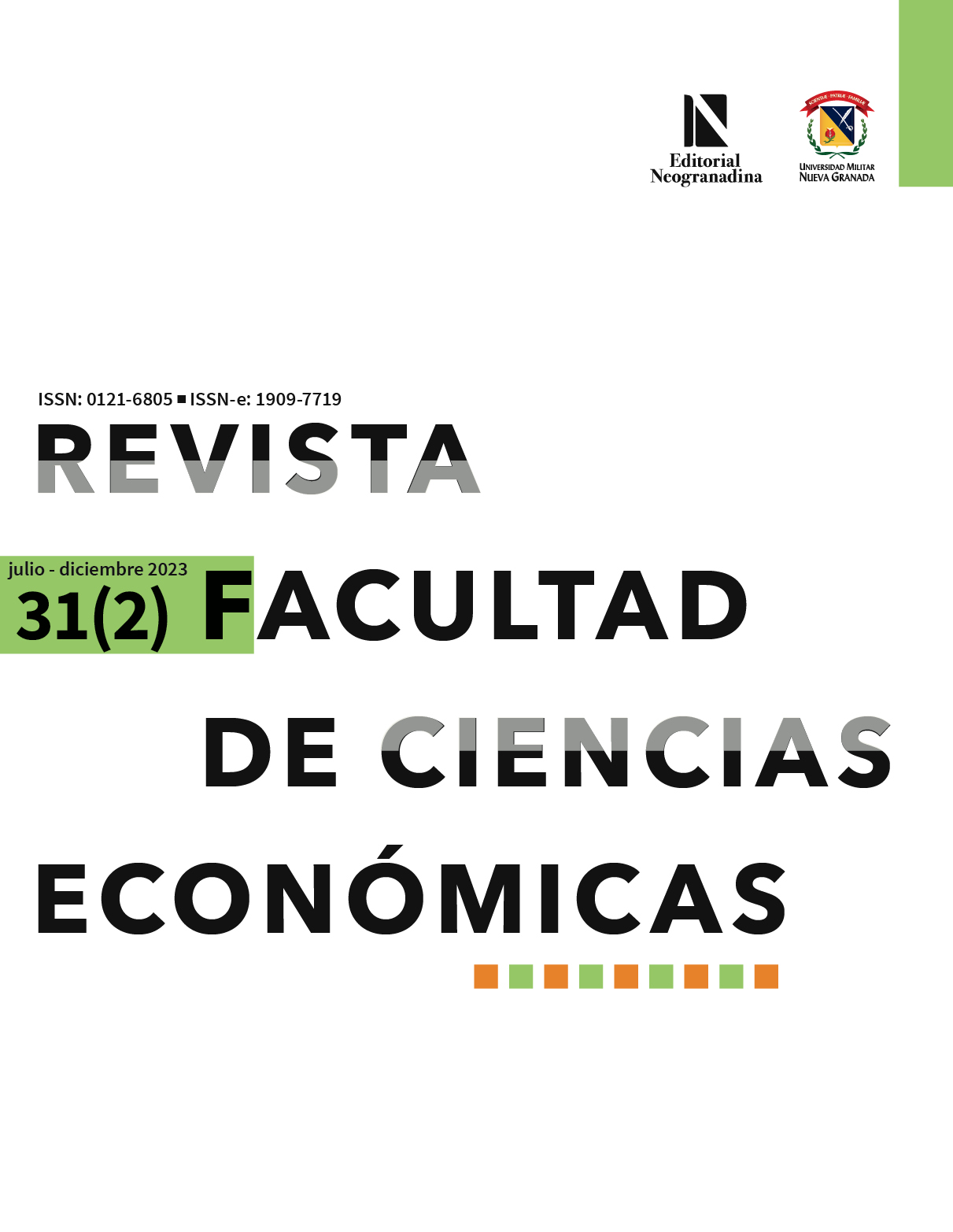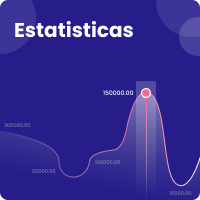Desafios da transição energética sustentável
perspectivas para a pesquisa e gestão
Resumo
O conceito de transição energética está presente na agenda política global como um processo indispensável no desenvolvimento sustentável dos países. Neste contexto, o artigo documenta o desenvolvimento da pesquisa no domínio do conhecimento da transição energética sustentável como um pilar da agenda geopolítica global e reflete sobre os desafios que este fenômeno implica a partir de perspectivas de pesquisa, geopolíticas e geoeconômicas. A metodologia utilizada envolve revisão de literatura combinada com análise bibliométrica e técnicas de análise de conteúdo de documentos de pesquisa recuperados na base de dados Web of Science e em setores específicos. Os achados mais representativos indicam o seguinte: em primeiro lugar, o Acordo de Paris impulsionou a pesquisa relacionada ao desenvolvimento sustentável, à transição e à segurança energética em termos técnicos, culturais, sociais, políticos e econômicos; em segundo lugar, em termos geopolíticos, o processo de transição energética desempenha um papel decisivo no xadrez político global, no qual os países avaliam suas forças em relação à continuidade do fornecimento de energia para seus cidadãos; e em terceiro lugar, em termos geoeconômicos, os países exportadores de carvão e petróleo estão ajustando os gastos públicos a orçamentos funcionais em um contexto de energias renováveis. Os autores concluem que uma transição gradual e o equilíbrio da matriz energética são fundamentais para reduzir as emissões de gases de efeito estufa que causam o aquecimento global e garantir a sustentabilidade energética sem afetar drasticamente a economia das nações.
Downloads
Referências
ANH. (2022). Datos y estadísticas: producción diaria de petróleo. Agencia Nacional de Hidrocarburos. https://www.anh.gov.co/es/operaciones-y-regalías/datos-y-estadisticas/
Asif, M. y Muneer, T. (2007). Energy supply, its demand and security issues for developed and emerging economies. Renewable and Sustainable Energy Reviews, 11(7), 1388-1413.https://doi.org/10.1016/J.RSER.2005.12.004
Banco Mundial. (2020). Energía. Panorama General. https://www.bancomundial.org/es/topic/energy/overview#1
BBC. (2022). Rusia invade Ucrania: cómo fue el inicio de la operación militar ordenada por Putin. British Broadcasting Corporation.https://www.bbc.com/mundo/noticias-internacional-60514738
Bejerano, J. B. y Jové-Llopis, E. (2019). Mercados eléctricos ante la transición energética: diseño y retos de futuro. Presupuesto y Gasto Público, 97, 177-192.
Bresser, D., Buchholz, D., Moretti, A., Varzi, A. y Passerini, S. (2018). Alternative binders for sustainable electrochemical energy storage - the transition to aqueous electrode processing and bio-derived polymers. Energy & Environmental Science, 11(11), 3096-3127.https://doi.org/10.1039/C8EE00640G
British Petroleum. (2021). Statistical Review of World Energy. BP Energy Outlook 2021, 70, 1-72. https://www.bp.com/content/dam/bp/business-sites/en/global/corporate/pdfs/energy-economics/statistical-review/bp-stats-review-2021-full-report.pdf
Brundtland, G. H. (1987). Our Common Future-Call for Action. Environmental Conservation, 14(4), 291-294. https://doi.org/10.1017/S0376892900016805
Bustamante, P., García, R., Maya, O., Rodriguez, J. F. y Aguilar, T. (2021). Minería de carbón en colombia. Asociación Colombiana de Minería, 1-49. https://www.minenergia.gov.co/documents/10192/24311177/Presentacion-Carbon.pdf
CEPAL. (2022). Anuario Estadístico de América Latina y el Caribe 2021. Comisión Económica Para América Latina y El Caribe. (LC/PUB.2021/20-P), Santiago, 1-161.
Chadegani, A. A., Salehi, H., Yunus, M. M., Farhadi, H., Fooladi, M., Farhadi, M. y Ebrahim, N. A. (2013). A ComParíson between Two Main Academic Literature Collections: Web of Science and Scopus Databases. Asian Social Science, 9(5), p18.https://doi.org/10.5539/ASS.V9N5P18
Child, M., Koskinen, O., Linnanen, L. y Breyer, C. (2018). Sustainability guardrails for energy scenarios of the global energy transition. Renewable and Sustainable Energy Reviews, 91, 321-334. https://doi.org/10.1016/J.RSER.2018.03.079
Choudhary, K. y Sangwan, K. S. (2022). Green supply chain management pressures, practices and performance: a critical literature review. Benchmarking: An International Journal, 29(5), 1393-1428.https://doi.org/10.1108/BIJ-05-2021-0242
DANE. (2022). PIB a precios corrientes 2021. Departamento Administrativo Nacional de Estadística.
Diesen, G. y Lukin, A. (2020). Russia in a Changing World. Palgrave Macmillan.https://doi.org/10.1007/978-981-15-1895-9
DNP. (2022). Aprobado CONPES de Transición Energética que consolidará el proceso hacia un desarrollo y crecimiento económico sostenible. Dirección Nacional de Planeación.
Dominković, D. F., Bačeković, I., Pedersen, A. S. y Krajačić, G. (2018). The future of transportation in sustainable energy systems: Opportunities and barriers in a clean energy transition. Renewable and Sustainable Energy Reviews, 82, 1823-1838.https://doi.org/10.1016/J.RSER.2017.06.117
El Baz, J. y Iddik, S. (2020). Green supply chain management and organizational culture: a bibliometric analysis based on Scopus data (2001-2020). International Journal of Organizational Analysis, 30(1), 156-179. https://doi.org/10.1108/IJOA-07-2020-2307
Elkington, J. y Rowlands, I. H. (1999). Cannibals with forks: The triple bottom line of 21st century business. Alternatives Journal, 25(4).https://doi.org/10.1002/tqem.3310080106
Expansión. (2022). Colombia: generación de electricidad. Datos Macro - Expansión.Com.
Giménez, P. (2017). La Agenda 2030 de Desarrollo Sostenible : especial referencia al Objetivo 7 en la Unión Europea. Universidad Internacional de La Rioja, 1-43.
Henckens, M. L. C. M. (2022). The Energy Transition and Energy Equity: A Compatible Combination? Sustainability 2022, Vol. 14, Page 4781, 14(8), 4781.https://doi.org/10.3390/SU14084781
Hess, D. J. (2018). Energy democracy and social movements: A multi-coalition perspective on the politics of sustainability transitions. Energy Research & Social Science, 40, 177-189.https://doi.org/10.1016/J.ERSS.2018.01.003
IEA. (2021a). Net Zero by 2050 - A Roadmap for the Global Energy Sector. https://www.iea.org/t&c/
IEA. (2021b). World Energy Outlook 2021. International Energy Agency. https://www.iea.org/weo
Jabareen, Y. (2006). A New Conceptual Framework for Sustainable Development. Environment, Development and Sustainability 2006 10:2, 10(2), 179-192. https://doi.org/10.1007/S10668-006-9058-Z
Jacobus, A. (2006). Sustainable development - historical roots of the concept. Environmental Sciences, 36(2), 83-96. https://doi.org/10.1080/15693430600688831
Kaufmann, R. K. y Ullman, B. (2009). Oil prices, speculation, and fundamentals: Interpreting causal relations among spot and futures prices. Energy Economics, 31(4), 550-558.https://doi.org/10.1016/j.eneco.2009.01.013
Kern, F. y Smith, A. (2008). Restructuring energy systems for sustainability? Energy transition policy in the Netherlands. Energy Policy, 36(11), 4093-4103.https://doi.org/10.1016/J.ENPOL.2008.06.018
Kucherov, F. A., Romashov, L. V., Galkin, K. I. y Ananikov, V. P. (2018). Chemical Transformations of Biomass-Derived C6-Furanic Platform Chemicals for Sustainable Energy Research, Materials Science, and Synthetic Building Blocks. ACS Sustainable Chemistry and Engineering, 6(7), 8064-8092.https://doi.org/10.1021/acssuschemeng.8b00971
Kuzemko, C., Bradshaw, M., Bridge, G., Goldthau, A., Jewell, J., Overland, I., Scholten, D., Van de Graaf, T. y Westphal, K. (2020). Covid-19 and the politics of sustainable energy transitions. Energy Research & Social Science, 68, 101685.https://doi.org/10.1016/J.ERSS.2020.101685
Lockwood, M., Kuzemko, C., Mitchell, C. y Hoggett, R. (2016). Historical institutionalism and the politics of sustainable energy transitions: A research agenda:https://doi.org/10.1177/0263774X16660561
López-Robles, J., Guallar, J., Otegi-Olaso, J., Gamboa-Rosales, N. (2019). El profesional de la información (EPI): Bibliometric and thematic analysis (2006-2017). El Profesional de La Información, 28(4). https://doi.org/10.3145/epi.2019.jul.17
Maditati, D. R., Munim, Z. H., Schramm, H. y Kummer, S. (2018). A review of green supply chain management: From bibliometric analysis to a conceptual framework and future research directions. Resources, Conservation and Recycling, 139, 150-162. https://doi.org/10.1016/j.resconrec.2018.08.004
Makarov, A. A., Mitrova, T. A. y Kulagin, V. A. (2019). Global and Russian Energy Outlook 2019. The Energy Research Institute of the Russian Academy of Sciences The Energy Centre, Moscow School of Management SKOLKOVO, 1-211.
Martinez, A., Delgado, M., Cruz, N., Gallego, A. y Hernandez, D. (2021). Los retos del Grupo ecopetrol y del país frente a la transición energética. Fedesarrollo, 1-55.
Mensah, J. (2019). Sustainable development: Meaning, history, principles, pillars, and implications for human action: Literature review. Cogent Social Sciences, 5(1).https://doi.org/10.1080/23311886.2019.1653531
Merli, R., Preziosi, M. y Acampora, A. (2018). How do scholars approach the circular economy? A systematic literature review. Journal of Cleaner Production, 178, 703-722. https://doi.org/10.1016/j.jclepro.2017.12.112
Ministerio de Minas y Energía. (2021). Transición Energética: Un legado para el presente y el futuro de Colombia' (La imprenta Editores). https://www.conte.org.co/libro-transicion-energetica-un-legado-para-el-presente-y-el-futuro-de-colombia/
Neacșa, A., Panait, M., Mureșan, J. D., Voica, M. C. y Manta, O. (2022). The Energy Transition between Desideratum and Challenge: Are Cogeneration and Trigeneration the Best Solution? International Journal of Environmental Research and Public Health 2022, Vol. 19, Page 3039, 19(5), 3039.https://doi.org/10.3390/IJERPH19053039
OMS. (2020). Declaración sobre la segunda reunión del Comité de Emergencias del Reglamento Sanitario Internacional (2005) acerca del brote del nuevo coronavirus (2019-nCoV). Organización Mundial de La Salud. https://www.who.int/es/news/item/30-01-2020-statement-on-the-second-meeting-of-the-international-health-regulations-(2005)-emergency-committee-regarding-the-outbreak-of-novel-coronavirus-(2019-ncov)
Overland, I., Bazilian, M., Ilimbek Uulu, T., Vakulchuk, R. y Westphal, K. (2019). The GeGaLo index: Geopolitical gains and losses after energy transition. Energy Strategy Reviews, 26, 1-16.https://doi.org/10.1016/j.esr.2019.100406
Porfiriev, B. N. (2016). Tendencias "verdes" en el sistema financiero mundial. Economía Mundial y Relaciones Internacionales, 60(9), 5-16.
Saidi, K. y Omri, A. (2020). The impact of renewable energy on carbon emissions and economic growth in 15 major renewable energy-consuming countries. Environmental Research, 186, 109567. https://doi.org/10.1016/J.ENVRES.2020.109567
Seyfang, G. y Haxeltine, A. (2012). Growing Grassroots Innovations: Exploring the Role of Community-Based Initiatives in Governing Sustainable Energy Transitions. Environment and Planning C: Government and Policy, 30(3), 381-400.https://doi.org/10.1068/C10222
Steg, L., Perlaviciute, G. y van der Werff, E. (2015). Understanding the human dimensions of a sustainable energy transition. Frontiers in Psychology, 6, 805.https://doi.org/10.3389/FPSYG.2015.00805/BIBTEX
Stern, D. I. (2018). Energy-GDP Relationship BT - The New Palgrave Dictionary of Economics. Macmillan Publishers Ltd, 3697-3714.https://doi.org/10.1057/978-1-349-95189-5_3015
Suarez, M. F., Ramirez, R. H., Martinez, J., Leyva, S., Viana, R. y Sandoval, W. (2019). Guía para la incorporación de la dimensión minero energética en los planes de ordenamiento departamental. Unidad de Planeación Minero Energética - UPME, 1-141.
The Economist. (2020). The end of the Arab world's oil age is nigh. The Economist. https://www.economist.com/middle-east-and-africa/2020/07/18/the-end-of-the-arab-worlds-oil-age-is-nigh
UNFCCC. (2015). The París Agreement. United Nations Climate Change, 1-29. https://doi.org/10.16925/co.v25i111.1874
United Nations. (2015). The París Agreement. Framework Convention on Climate Change (UNFCCC) UNFCCC. https://www.unaoc.org/images/mou_iom.pdf
UPME. (2019). Plan Energetico Nacional 2020-2050. Unidad de Planeación Minero Energética - UPME, 1-86. https://www1.upme.gov.co/
Vilisov, M. (2020). La transición energética y su impacto en la política estatal. Universidad Estatal M. V. Lomonósov de Moscú, Rusia, 1-16.
Wilson, C. y Grubler, A. (2011). Lessons from the history of technological change for clean energy scenarios and policies. Natural Resources Forum, 35(3), 165-184.https://doi.org/10.1111/J.1477-8947.2011.01386.X
World Bank. (2021). Gross domestic product 2020. World Development Indicators Database, 1-4. https://doi.org/10.1787/54ace363-en
World Economic Forum. (2022). Fostering Effective Energy Transition 2022. https://www.weforum.org/reports/fostering-effective-energy-transition-2022/
Copyright (c) 2023 Revista Facultad de Ciencias Económicas

Este trabalho está licenciado sob uma licença Creative Commons Attribution-NonCommercial-NoDerivatives 4.0 International License.











